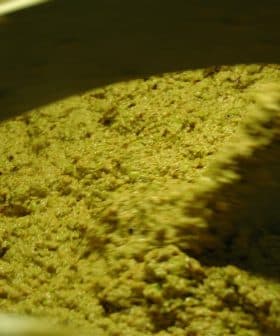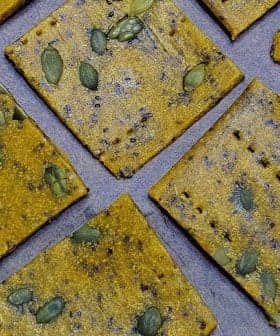Phenols in Olive Oil Enhance Osteoblast Cell Growth for Better Bone Health
A recent study published in PLOS ONE investigated the effects of extra virgin olive oil phenols on the growth of osteoblasts in a laboratory setting, finding that certain phenolic compounds increased cell proliferation. While more research is needed to understand the exact mechanisms, the findings suggest that phenols in extra virgin olive oil may play a role in preventing osteoporosis in humans.
Although several studies show that consumption of olives and olive oil is effective in preventing bone mass loss in animal and cell models, there is little research on the role of phenolic compounds inextra virgin olive oil on the prevention of osteoporosis in humans.
Investigators of a recent research paper, published in the March 2016 issue of the journal PLOS ONE, investigated the effects of extra virgin olive oil phenols on growth of osteoblasts or bone-forming cells in the laboratory using the human MG-63 osteosarcoma cell line. This cell line is used most widely to research drug treatments for bone health.
See Also:Olive Oil Health Benefits
Since phenol content of extra virgin olive oil varies with variety and maturity of fruit at harvest, the researchers studied the effects ofextra virgin olive oil phenols extracted from four different olive cultivars at different stages of fruit ripening on osteoblastic cell proliferation of the cell line.
Olives from four cultivars – Picual, Arbequina, Picudo and Hojiblanca, grown on the experimental farm of the Agricultural Training Center in Cabra, Southern Spain, were harvested at three different stages of ripeness — at the beginning, middle and end of harvest season. For the study, the researchers isolated twelve phenolic compounds from the extra virgin olive oil extracted from the harvested olives to determine if they influenced osteoblast cell growth.
The authors found that while the content of all phenolic compounds in extra virgin olive oils decreased as the stage of fruit ripening increased, the content of tyrosol and hydrotyrosol was especially high in olives collected at the beginning of the harvest season.
Results of the study showed that treatment of osteoblast cells with extra virgin olive oil phenols increased the number of cells by 11 to 16 percent as compared to untreated cells. However, not all the phenolic compounds tested were effective in increasing the number of osteoblast cells. Of the twelveextra virgin olive oil phenolic compounds studied, hydroxytyrosol displayed the strongest antioxidant effect. At a concentration of 10 – 6 Molar, it increased the number of osteoblast cells by about 11 percent in 24 hours compared to control cultures.
Similarly, phenolic compounds caffeic, ferulic p‑coumaric, luteolin and apigenin were found to increase osteoblast cell proliferation, while phenolic compounds oleuropein, pinoresinol, sinapic, vanillic acid and derivative (vanillin) did not affect the growth of the osteoblast cells.
The researchers also found that combinedextra virgin olive oil phenols displayed higher osteoblast cell proliferation rates than growth observed with individually extracted phenols.
Although phenols from all varieties increased cell proliferation, some varietal differences were observed. Phenols from the Picual variety were most effective in stimulating cell growth and increased cell proliferation by 18 to 22 percent, whileextra virgin olive oil phenols from the Arbequina variety had the lowest effect and increased osteoblastic cell proliferation by 9 to 13 percent.
The proposed theory behind the proliferation of osteoblasts by EVOO phenolic compounds may be due to their ability to increase alkaline phosphatase activity and deposit calcium ions in the extracellular matrix. Furthermore, other in vivo and in-vitro studies show that natural phenolic acids may positively affect the skeletal system by preventing bone resorption and stimulating bone formation.
While more research is needed to understand the role ofextra virgin olive oil phenols in signaling pathways and their mode of action in osteoblast cell growth, the authors suggest adding proliferation of MG-63 osteoblast cells and possible osteoporosis prevention to the list of other known benefits ofextra virgin olive oil phenols such as their anti-inflammatory, antioxidant, anti-mutagenic and anti-carcinogenic activities.









